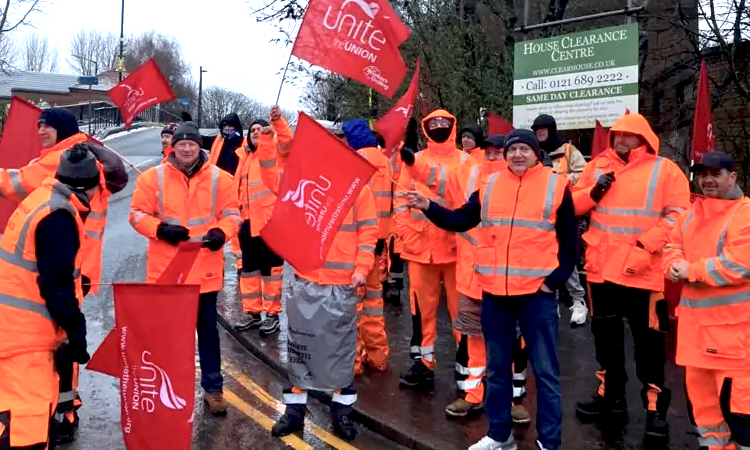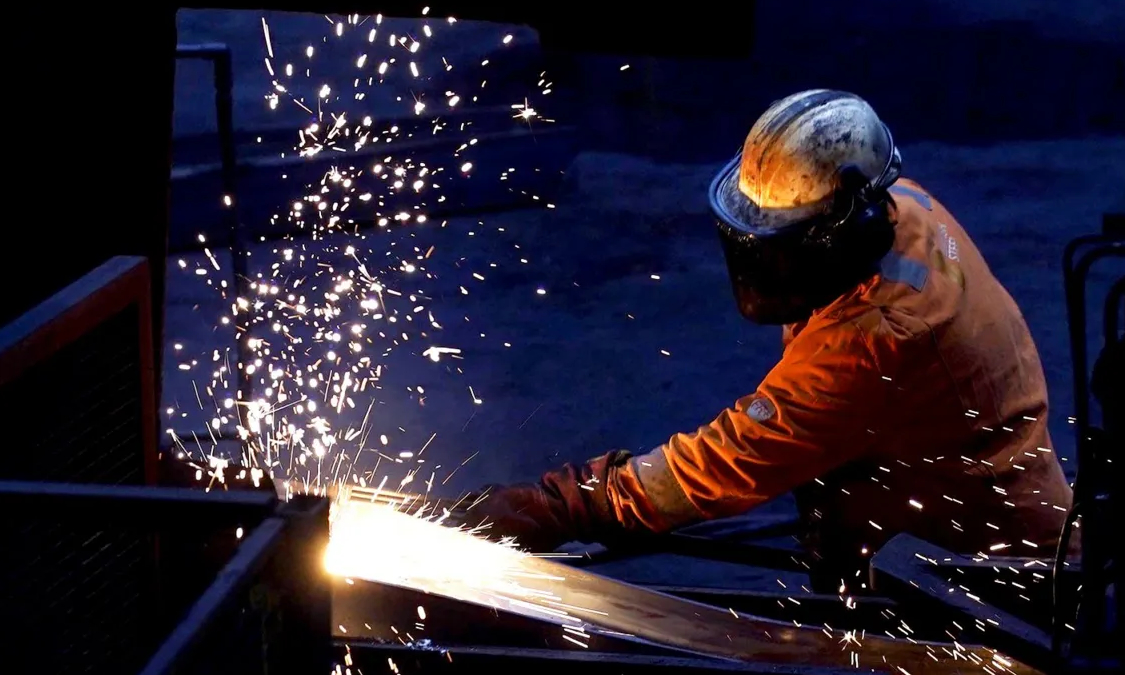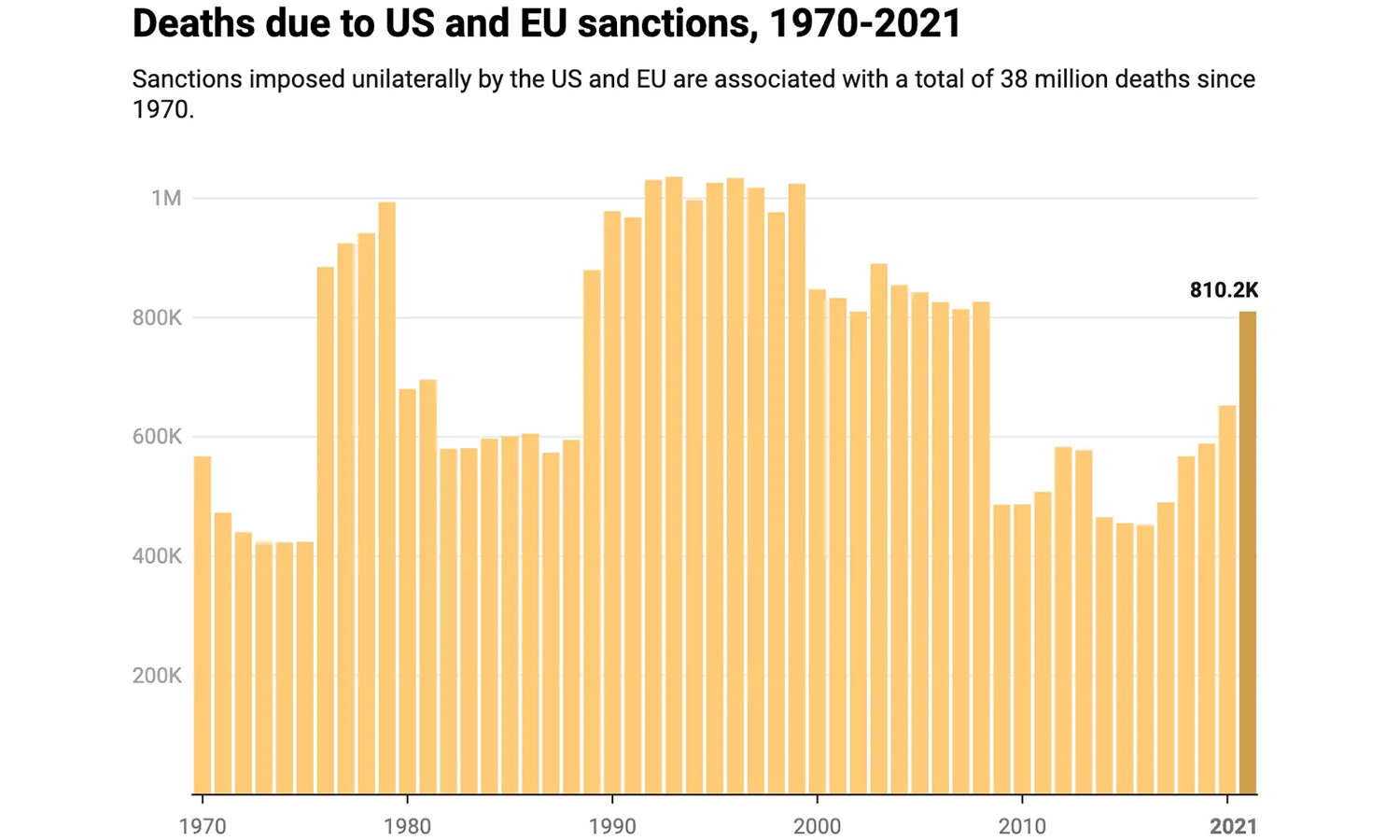French ferry workers blaze a trail
The June dispute that saw French strikers setting fire to rail tracks, lorries backed up for miles on the M20 through Kent, and the tabloids screaming about an invading army of migrants, had its origins in a cut-throat three-way battle for monopoly control of the lucrative Dover-Calais ferry route.
In 2012, when the ferry company SeaFrance went into liquidation, Eurotunnel picked up one of its key assets, the passenger ferry service on the popular Dover-Calais cross-channel route. This enraged the Paris-based Eurotunnel’s two competitors, the British P&O Ferries and the Dutch DFDS, which had counted on the demise of SeaFrance to leave them sharing a cosy monopoly on this profitable sector.
Instead, in their view and eventually in the view of the British Competition Commission, Eurotunnel acted against competition regulations by adding the Dover-Calais ferry route to its existing passenger and freight tunnel. The fact that the route was being farmed out to a small French cooperative called MyFerryLink, not operated directly by Eurotunnel, was interpreted as a scam by Eurotunnel to enable it to rig the market, enabling MyFerryLink to undercut DFDS and P&O’s fares by means of a hidden subsidy from the parent company.
Meanwhile, whilst Eurotunnel, P&O and DFDS all slugged it out to secure the maximum market share, the 600+ workers employed by the MyFerryLink cooperative struggled day by day to hang on to their jobs. Now, with the Competition Commission finally coming down against it, Eurotunnel has summarily terminated the hire arrangement which it had previously found so convenient, sold the two ferry boats to DFDS, and abandoned the mostly French workforce to an uncertain future.
Having been used for years in this way as pawns in a shabby Game of Thrones, it is not to be wondered at that the workers reacted with fury to this turn of events, giving a heroic lesson in practical class struggle deserving of emulation by unions closer to home. As traffic backed up through Kent, Eurostar ground to a halt and this vital transport hub was plunged into chaos, everyone blamed everyone else.
So enormous were the feared knock-on consequences of the industrial action taken by just 600-odd MyFerryLink workers that British transport secretary Patrick McLoughlin chaired a meeting of Cobra, the government’s emergency committee that was first set up to deal with the 1972 miners’ strike and is now armed with powers to deploy the armed services, ban public assembly, impose travel restrictions, and prevent public access to sensitive areas.
What more proof could workers need of their collective power?
Blacklist
The persecution of members of the Blacklist Support Group continues. Following on the recent arrest of Dave Smith on a peaceful demonstration, fellow BSG stalwart Steve Barley has now found himself sacked in another case of blatant victimisation.
When the Pier Agency in Cardiff employed Steve to work in Gloucestershire, on a site for which the contractor was Wates, Briggs and Forrester, he and others were told that weekend overtime would be at the customary time and a half for the first four hours and double time thereafter. Once on the job, however, the story changed: weekend overtime was to be paid at basic plus £2 an hour extra!
The game was to use Steve and other agency staff to undercut wages on the site. When Steve and his fellow workers quite reasonably declined to work overtime at weekends on this basis, they were summarily dismissed.
Not only is the blacklist alive and kicking in the construction industry, but employers clearly regard it as open season on all those who dare to stand up for their rights and campaign against it.
Porters and steelworkers
Recent strikes in Britain have notched up some modest victories. Porters at Dundee’s Ninewells and Royal Victoria hospitals voted to return to work at the end of June after a hard-fought thirteen-week strike, having won substantial concessions on pay.
Under the deal the porters will get a wage rise of around 7 percent plus a lump sum in compensation for previous years of low pay. Workers previously stranded in fixed-term contracts have now been made permanent.
Meanwhile, the threat of strike action has succeeded in deferring Tata UK’s plans to close the final-salary pension scheme for around 17,000 workers and to raise their retirement age from 60 to 65. How long this deferral will last is debatable, and it seems that the surviving final-salary scheme will still be doctored in some way to help plug the gap in the company’s £2bn pension deficit.
Taken to the cleaners
Cleaners at Sotheby’s gathered outside the firm’s Bond Street headquarters on 1 July to protest against their shabby treatment by the prestigious London auction house.
Back in May, when the cleaners were still employed by the CCML contractors, they won their campaign to secure the London living wage (£9.15 an hour), to include back pay. Without missing a beat, Sotheby’s fired CCML and brought in a different cleaning firm called Servest. The cleaners, now absorbed and rebranded in the new outfit, were told that there would be no back pay and they could whistle for sick pay.
When the union United Voices of the World organised the 1 July protest in Bond Street, Servest went into union-busting overdrive, threatening cleaners who dared defend their rights with dire consequences, reminding the cleaners that “those employed on Sotheby’s premises must demonstrate qualifications and competences appropriate to the performance of their duties and Sotheby’s retains the right to restrict access in the interests of safeguarding clients, property and staff”.
Strikes on Northern Rail?
Northern Rail, whose ownership is split 50-50 between the notorious outsourcing giant Serco and a subsidiary of Dutch Railways, runs trains all over the North West. The RMT union has about 1,500 members working for the company.
In a recent ballot, 90 percent of the vote supported industrial action over the summer to further the union’s campaign to halt the erosion of permanent posts and their replacement by contracted-out zero-hours staff.
The RMT is also resisting cuts to booking offices and erosion of the role and responsibility of guards. About 1,500 RMT members are involved.
US strikes: teachers and bus drivers
In Washington state, it is against the law for teachers in state schools to go on strike. Yet on 19 May, frustrated by being forced to teach oversized classes in underfunded schools for inferior wages, teachers in Seattle decided to walk out anyway.
In the days following, teachers from over 50 other school districts in the east of Washington state followed suit. Asked how they had arrived at this supposedly unlawful decision, teachers reported that they had simply held a meeting, at which 81 percent of teachers voted to walk out. So they did.
Sticklers for the law might note that the state supreme court ruled recently (in the McCleary judgement) that state budget cuts are themselves in contravention of the state’s own constitution, which requires that the state should fully fund education.
Meanwhile, bus drivers in Milwaukee completed a three-day strike on 4 July, timed to cause maximum disruption to the annual Summerfest rock festival. Drivers are resisting the imposition of a new four-year contract which would see the introduction of 300 part-time drivers who are not included in the pension scheme, inadequate rest periods in substandard facilities and lax safety rules endangering both staff and the public.
Militancy is high in the union, with 92 percent voting to strike. There is also strong community support and solidarity from other unions. Picket duties began at three in the morning and were shared by members of the Milwaukee teachers’ union.
Turkish automotive workers dismiss yellow trade unions
For the last ten years in Turkey, the supposedly miraculous growth of the economy has helped to boost Erdogan’s poll ratings, even though the GDP figures never reflected the true conditions of existence of the masses, and despite widespread disquiet over political repression and Turkey’s extensive support for the islamist forces seeking to subvert Syria’s legitimate leadership. What has propped up his reputation through all this has been the apparent health of the economy. That prop has just received a mighty kick from the working class, on both the industrial and the electoral front.
A key component of that economic health has been the rapid growth of automotive exports: car production has expanded by leaps and bounds since Erdogan’s AKP party took power in 2002. Low-paid Turkish workers built 1.25m vehicles in 2014, making Turkey the fifth-largest auto manufacturer in Europe. Cars and commercial vehicles make up 14 percent of Turkey’s total exports. But it is precisely that sector of the economy which is now being convulsed by strikes, rocking the foundations upon which Erdogan’s reputation used to rest.
Strikes began this year on 14 May in the north west of Turkey, at Bursa’s Renault plant – a joint venture which significantly partners Renault with the Turkish army’s pension fund. The following day, the strike spread to the Fiat plant in Tofas, another joint venture. Over the next four days, the strike wave spread to the Mako, Co?kunöz, and Delphi plants, suppliers of components to Renault and Fiat. (It is calculated that the Fiat and Renault plants combined account for over 40 percent of Turkey’s annual car production.)
Finally the knock-on effects of the mass protests led to Turkey’s biggest car manufacturer, Ford Otosan, shutting down on the plea that it could not function without components, thus exposing the extreme vulnerability of imperialism resulting from the inherent weaknesses in its supply chain production system. All three joint enterprises – the French, the Italian and the American – ground to a halt, brought low by a wave of strikes that the union pretended were not happening and which it failed to lead.
Imperialist investment in the automotive sector has been sucked in by the lure of a poorly-paid workforce accustomed to working all the hours that God sends. Around 40 percent of Turkish workers are on basic weekly hours of 50 or more, higher than for any other national workforce in the OECD (Organisation for Economic Cooperation and Development) group of mostly wealthy countries.
More worrying still for Ankara, and for the imperialist string-pullers who stand behind Ankara, was the news that 7,000 automotive workers have quit the ‘official’ trade union, Türk Metal, in disgust at its refusal to fight for its members, instead tying workers into long-term sweetheart deals with management.
At the Renault plant, workers shouted slogans aimed jointly at management and at the trade union, demanding better wages and conditions and spurning a treacherous agreement cooked up between the employers’ union MESS and the trade union to cover the period 2014-17. As well as better wages, workers demanded direct representation by workers’ committees instead of the class-collaborationist union.
When the proletariat starts to recognise the role of reactionary ‘yellow’ trade unions as gendarmes within the workers’ movement, a key tool of capitalism in keeping the masses reconciled to its rule is seriously compromised. It is not only the AKP that will find itself to be sitting on a powder keg.












